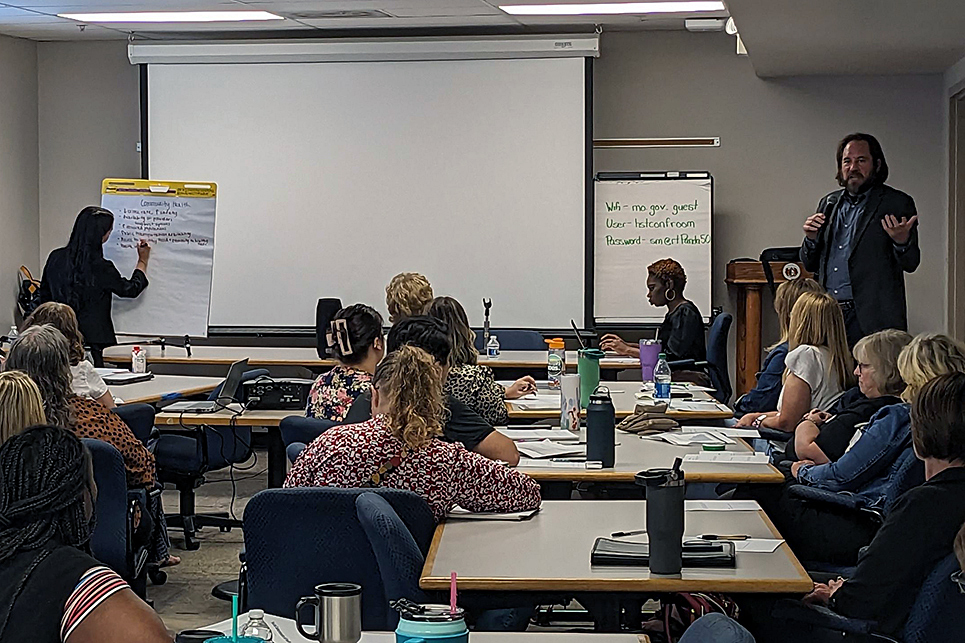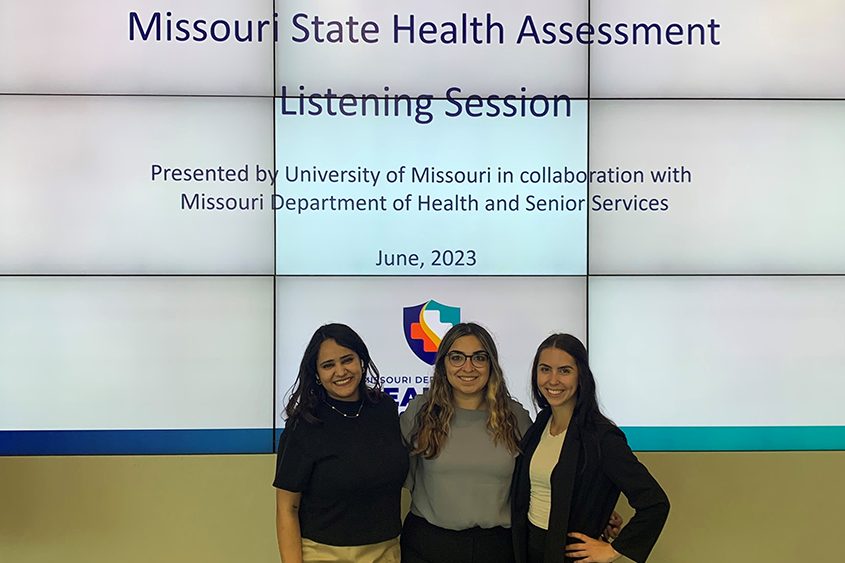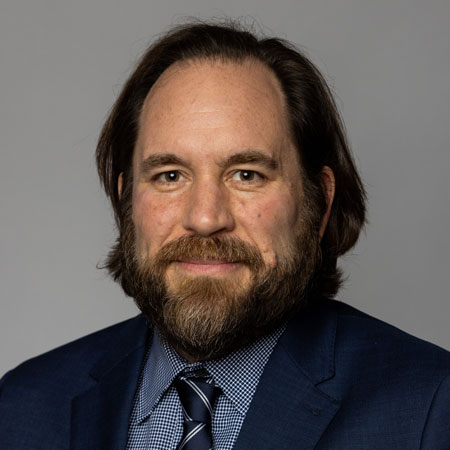News & Announcements
Public Health researchers play key role in State Health Assessment
Oct. 5, 2023

Story by Ryan Gauthier
While some Mizzou students spent the summer completing internships in exotic international locales, Ashley Estwin embarked on a whirlwind tour of Missouri.
Estwin, a second-year Master of Public Health student in the Health Promotion and Policy program, was part of an interprofessional team working to complete the State Health Assessment for the Missouri Department of Health and Senior Services (DHSS). The team was put together by J. Brian Houston, chair of the Department of Public Health at Mizzou, to host more than a dozen listening sessions throughout the state.
The sessions were designed to gather input from Missourians on key public health issues locally. While participants from each location had their own unique concerns, Estwin said some key phrases were repeated everywhere from the Missouri Bootheel to Kirksville.
“People repeatedly talked about the need for access to health care, transportation, and affordable fresh fruits and vegetables,” she said. “Transportation concerns were particularly common for older Missourians, who don’t have robust options for getting to and from health care appointments without calling their children or a friend or neighbor. That’s something we saw consistently.”
The pulse of public health
Dr. Houston said the State Health Assessment is important because it identifies health needs across Missouri and assesses existing health resources.
“The picture of the current state of public health in Missouri provided by this assessment will help inform how DHSS invests in health programs and services for the next several years,” Dr. Houston said. “So this assessment will guide state public health planning and investment for the immediate future.”
Beyond sharing concerns regarding access to health resources, Estwin said participants in the listening sessions spoke a lot about the lack of providers in rural areas, the limitations of Medicaid coverage, mental health issues, and the need to represent local needs at the state level. Some Missourians expressed an interest in having liaisons between local health jurisdictions and the DHSS to ensure state officials have a better understanding of what’s happening in their respective communities.
Chandrika Collins, a doctoral candidate in the Department of Communication and research assistant in the Department of Public Health, served as the co-facilitator for the listening sessions. The team coordinating the project also includes MPH students Fatma Bayati and Harshita Uchenia.
Participants in the sessions ranged in age from 19 years old to people in their late 80s, Collins said, with conversations touching on physical and mental wellness, health equity, difficulty finding oral health care, and other gaps in community resources.
But perhaps the most interesting feedback from community members in Jefferson City and Kansas City touched on something that Collins said most people might not consider as a public health concern: violence.
“They talked about physical violence concerns in terms of mental health and feeling safe in their communities,” Collins said. “I didn’t necessarily expect violence to come up in a discussion regarding public health, but it raised an interesting point. And I know from past work that physical violence concerns can have a direct impact on the health of community members.”

Shaping the future
The listening sessions wrapped up in early September, with plans to analyze the data and feedback from participants before the group begins the writing process. Dr. Houston said he expects the latest version of the State Health Assessment — the last one was published in 2021 — to be available to the public this December.
The project felt both rewarding and important, Collins said, as the findings of the report will shape the future of public health in Missouri — both at the state and local levels.
“The state is making a concerted effort to gain input from all potential stakeholders and will then use this data to inform funding decisions in a way that’s more meaningful for the populations that will be served,” she said.
Estwin agreed, noting that participants in the listening sessions felt validated in knowing their thoughts and concerns would be an important element of a much larger process.
“As soon as we’re done, we have people coming up to us to thank us for being there, listening to what they had to say, and bringing that feedback to the state,” Estwin said. “There’s that need that they want to feel heard and represented by the state.”
Featured in this post
